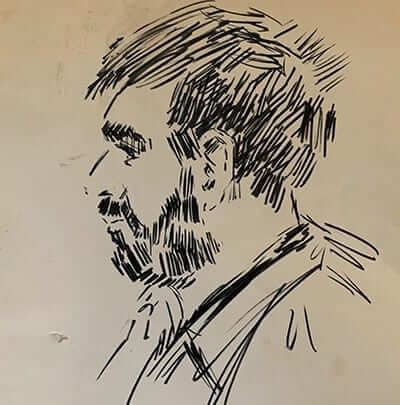To read Bret Stephens is to know what it means not to have a copy editor. To read his copy is to picture a spasmodic man-child, overcome by facial tics and rivulets of sweat, causing the wax and makeup on his forehead to run, causing people to flee while someone from Madame Tussauds tries to unplug this hybrid of putty and wires before Stephens squints, lifts his right leg, and turns his torrent of gas into a Tourette-like fit of gaseous commentary. To read his latest column is to know what we need not hear or smell in person: that Stephens is number one in number two. To know that fact is to know the truth about Stephens’s paeans to civil discourse and his praise for his alma mater, the University of Chicago—that he is full of it.
By attributing President Trump’s survival skills to a “rat-like instinct” for arousing people’s emotions, Stephens dehumanizes his enemy with the language of the enemies of freedom. The depiction of the president as a rodent—the degradation of a person into a plague—is one of the oldest poisons on behalf of the world’s oldest hatred: anti-Semitism. That Trump is not Jewish, while Stephens is, proves how easy it is to accept the unacceptable; that what Stephens says is legal but unjust; that I, too, support his right to say what he wants, though I hate what he says, despite knowing where such rhetoric ends: in libels printed in blood, with Jewish blood, by people who crave bloodshed.
In so doing, Stephens defames the very institution he celebrates. He stunts the growth of knowledge and impoverishes human life, betraying the greatness of the University of Chicago. He descends from that Gothic landscape into a gutter of invective and political sewage. He shows no signs of leaving his new home.

